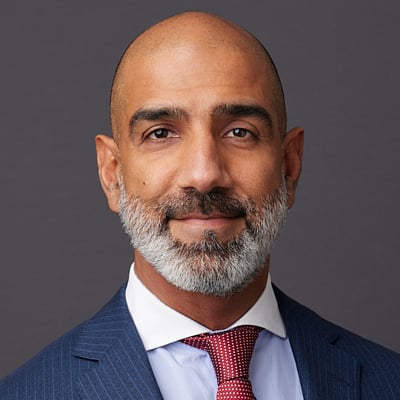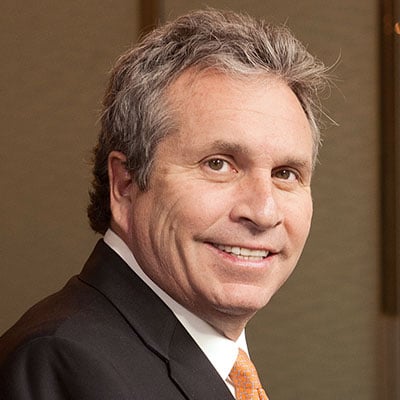Kirkland Rehires Atty For New Middle East Group
The attorney who established the first in-house legal department at Egypt's largest investment bank has rejoined Kirkland & Ellis LLP as partner in Chicago to help launch the firm's new Middle East practice group, the firm said Wednesday.
Kamran Bajwa, who spent the last eight years working on billions of dollars' worth of transactions involving Middle Eastern parties, will help launch the new practice group from the firm's Chicago office.
"The Middle Eastern market has shown tremendous growth and diversification in recent years, and is a significant region for the global economy," Jeffrey C. Hammes, chairman of Kirkland's global management executive committee, said in a statement. "Kamran's knowledge and experience will benefit our clients doing business in the Middle East as well as our Middle East clients doing business in the U.S. and Europe."
Bajwa said he moved back to Kirkland, where he worked from 2000 to 2003, because of his own professional interests, the firm's global growth and his previous good relationship with the firm.
"In some sense, my work in the Middle East was a continuation of what I started when I was with K&E before," he said. "Eight years later, it was just time for me professionally to grow and ... keep going after more challenging work and complex transactions."
Over the past few years, Kirkland has also been "going through a tremendous growth cycle," he said.
"The globalization and expansion of their international work is a key priority," Bajwa said. "K&E really gives a high-powered and expansive platform for me to develop this work."
After leaving Kirkland previously, Bajwa moved to the law firm Afridi & Angell in Dubai, United Arab Emirates. In 2007, he went to EFG-Hermes Holding SAE, whose legal department he created.
While there, he also helped the investment bank expand regionally — into Kuwait, Oman, Qatar, Lebanon and Saudi Arabia — and worked on its cross-border transactions, including acquisitions, structured offerings, and private equity and hedge fund formations.
Over the years, he's worked on more than 50 major business transactions with a combined value of more than $12 billion, according to Kirkland.
Some of his major transactions include an $800 million debt refinancing for a publicly traded U.S. company and a $350 million Islamic finance construction lease for the Dubai Palm Islands project.
Bajwa also helped establish an equity swap derivative offering for the Saudi capital market — the first of its kind in that market.
He also handled the formation of a $500 million Egypt private equity fund, a $1 billion cross-border acquisition of a major U.S. home development company, and a $3.2 billion telecommunications privatization in Turkey, according to Kirkland.
Bajwa said the work he did in the Middle East had been fascinating and challenging. When he first left Kirkland and headed to the region, he wondered whether he'd have to "relearn the ropes."
"What I quickly found is that ... most of the significant business transactions that are happening in the Middle East region often involve counterparties or partners that are from the U.S., the U.K. or other parts of the world," he said.
But because the state of the law in many countries is not as developed — in particular with regard to larger, more complex deals — U.S. and U.K. law becomes the precedent for structures, term sheets and other documentation, he said.
His job, then, was to refer back to the latest trends in New York, Chicago, London and other major western business hubs and tailor it to issues that crop up under Middle Eastern law, he said.
"If you asked me in 2003 what kind of deals I'd be doing, I never imagined an equity swap trading program for Saudi capital markets," he said.
While the regions' economies are quickly become more integrated with the rest of the world and more diverse as they move beyond oil exports, the oil-exporting countries have one advantage: they're remaining strong and running surplus budgets.
That is allowing them to put money toward infrastructure development — an opportunity for U.S. companies, investors and private equity firms to get involved. Likewise, Middle Eastern countries flush with cash from oil production are also now able to "put serious capital to work in foreign investment," Bajwa said.
Bajwa earned his law degree from the University of Michigan Law School in 1999. He also received his 1994 bachelor's degree in sociology from the University of Michigan, and completed independent studies in Arabic language and Islamic Law in Cairo, the firm said.
REPRINTED WITH PERMISSION FROM THE JULY 21, 2011 EDITION OF LAW360 © 2011 PORTFOLIO MEDIA INC. ALL RIGHTS RESERVED. FURTHER DUPLICATION WITHOUT PERMISSION IS PROHIBITED


